Front Row lecture series
Regenerative medicine for the treatment of MS: Enhancing repair to prevent progression
Luke Lairson, PhD
Professor, Department of Chemistry
Multiple sclerosis (MS) is a debilitating autoimmune disease that disrupts the central nervous system, causing symptoms like muscle weakness, cognitive challenges and a gradual loss of function that current treatments cannot fully repair. MS arises when the immune system attacks the myelin sheath, the protective layer insulating neurons. Scripps Research chemistry professor Luke Lairson will discuss his research on the body’s natural repair pathways—specifically those that activate endogenous stem cells to restore myelin. His work aims to develop therapies that complement existing therapeutic approaches and halt MS progression.
Presented: April 16, 2025
Presentation slides
Key Takeaways

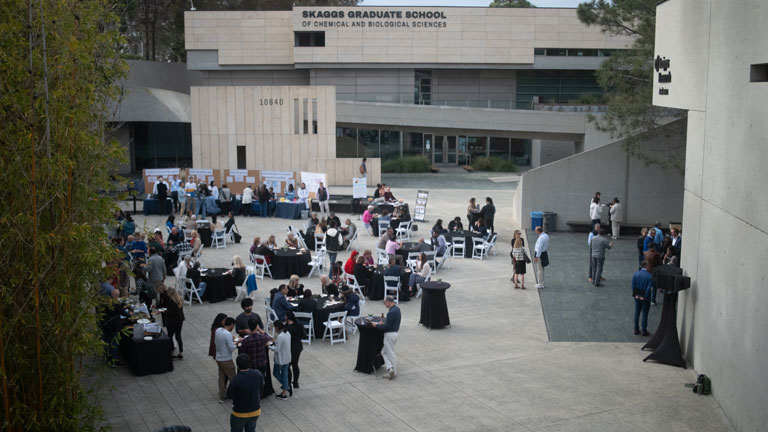







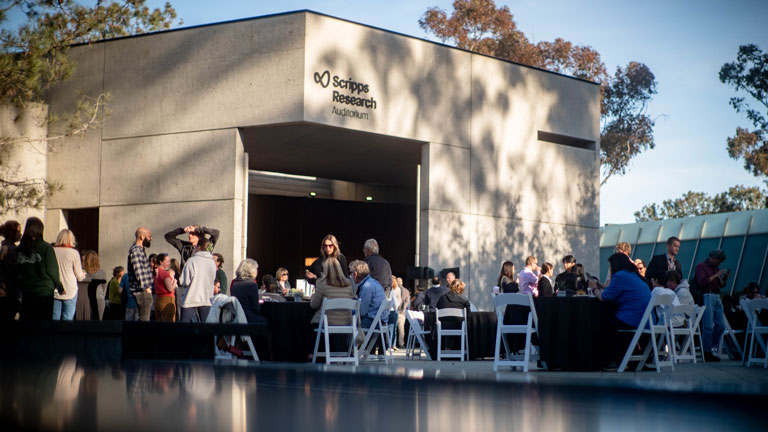



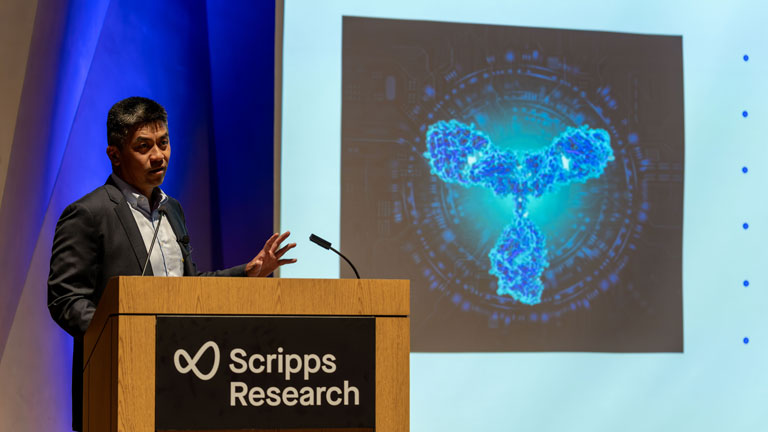















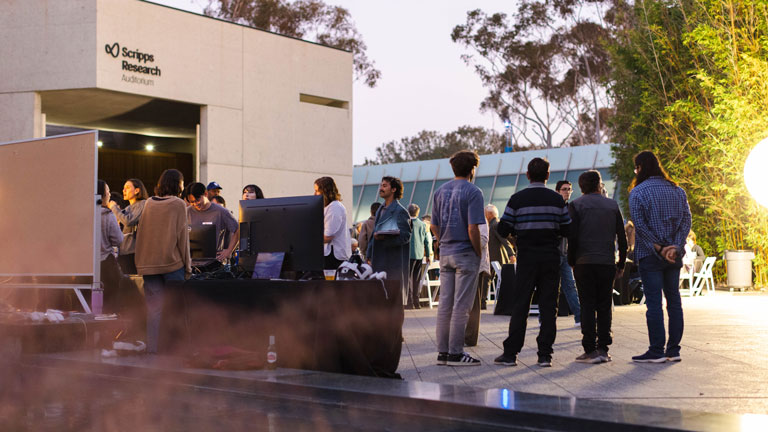








































































































































Regenerative medicine for the treatment of MS: Enhancing repair to prevent progression
Multiple sclerosis (MS) is a debilitating autoimmune disease that disrupts the central nervous system, causing symptoms like muscle weakness, cognitive challenges and a gradual loss of function that current treatments cannot fully repair. MS arises when the immune system attacks the myelin sheath, the protective layer insulating neurons. Scripps Research chemistry professor Luke Lairson will discuss his research on the body’s natural repair pathways—specifically those that activate endogenous stem cells to restore myelin. His work aims to develop therapies that complement existing therapeutic approaches and halt MS progression.
Check back soon for presentation video, slides and key takeaways.
Speaker Spotlight
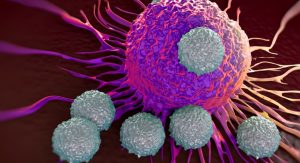

Unleashing the immune system’s ‘STING’ against cancer
Scientists at Scripps Research and Calibr-Skaggs have discovered a molecule that can activate a natural immune-boosting protein called STING to help patients fight cancer.
Read press release
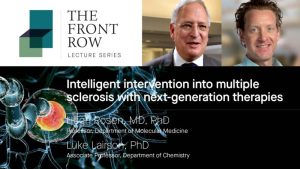
Intelligent intervention into multiple sclerosis with next-generation therapies
In this lecture, Professors Luke Lairson and Hugh Rosen share how their research targeting the underlying causes of multiple sclerosis (MS) is leading to intelligent interventions that slow or halt the progression of the disease.
Watch lecture
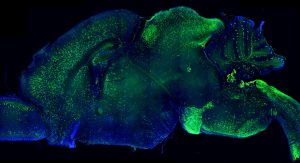

Promising compound selectively kills brain cancer stem cells
Scientists found that a new compound, which they dubbed RIPGBM, kills glioblastoma stem-like cells cultured from patients’ tumors with more than 40 times the potency of the standard GBM drug temozolomide.
Read press release
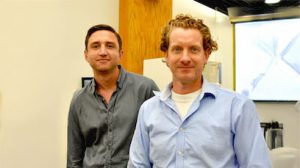

Researchers Discover Promising New Anticancer Strategy
Scientists discover a compound that in laboratory tests irreversibly stops the growth of certain aggressive, treatment-resistant tumor cells. If successfully developed into a treatment, the compound would be the first of a new class of anticancer drugs.
Read press release